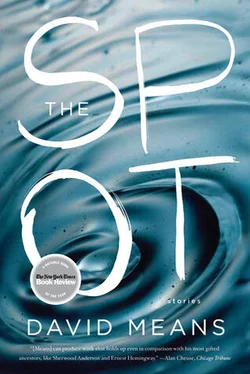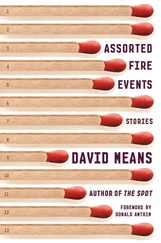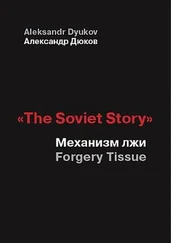In a movie I would have ditched Lester right there, snapped the locks, moved over into his seat, and torn out into the night, doing so for my own sake and for Augusta’s, saving us both, knowing right from wrong, solving the riddle of our own situation with a single, swift act, turning the tables, finding a foothold on a newfound sense of goodness; he’d be out there in some frozen field, amid the dead husks, taking a piss, when he’d hear the tires squeal, zipping himself up while making one of those funny staggers across the dirt, holding his fingers up into a frame and calling, Cut, cut, cut. In the car we’d give little hoot laughs, girl to girl, and Augusta would speak to me, her voice dry and tight in a Red Carpet tone, and she’d talk in a strange manner, like she was in an old play or something, and she’d say, We’ve torn ourselves free of the demonic, of the oracle that has given us the word, or something like that in a haunted voice, babbling on and on while I drove all the way to Oklahoma City. We’d get to the memorial in heavy snow. We’d get out of the car and there would be that fake movie night, that night that’s not really dark, or light. At least not dark enough to be real. There’d be fake snow on our shoulders, too, sticking to them, refusing to melt, while we went from chair to chair. One chair for each dead person. (I’d sit in one and say something along the lines of: My poor mom died in the blast, gone in a flash, got up one morning and headed for social services unaware that it was her last, and then Augusta, taking her turn, would talk about how her own sister had gone to the day-care center that morning, because her daughter was having problems with separation anxiety, problems parting, saying so long. With the snow coming down — still crying — we’d move from chair to chair, sitting in each one, leaving an impression in the snow on the dark stone. Then the camera would begin to rise above us, up and up, and you’d see the whole scene, chair, snow, girls, night light, the monument to the blast, the empty space, the shadows cast by the chairs, the road leading out, the buildings around it; up and up but always both of us visible, two girls who had somehow rescued themselves from a complete fuckup, from a demented Wind Country guy.) But, you know, the movie ending wouldn’t be that simple. Nothing ever is. You’d sit in the theater, scraping the last bits of popcorn from the bucket, knowing that Lester is still out there, probably up in that park, near that rock where the first Oklahoma oil well was sunk, the place that started the whole fucking mess, smoking a joint and racking his brain over where I might be. You’d be aware of this in the theater, as the camera kept moving skyward, and you’d feel a bit of the fear that I felt, then, in the car, knowing that he’d be lodged in your mind, waiting to pop up suddenly, to take advantage of the situation. You’d leave the theater with me in your mind, too, and with Augusta (but a better version of what she really was), and you’d carry me right back to your nice house in Tulsa. You’d drive into your garage, the door closing behind you, and go up the stairs into your warm kitchen for a glass of milk, maybe a cookie, and then to your warm bedroom, with the king-size bed; you’d take me under the covers with you, my eyes, my mouth, my long brown hair, and you’d lie with the blankets up around your chin, safe and sound, and see me inside your mind. I’d be giving you a huge smile, grinning a big, fat, shit-eating grin. Only later, waking to use the bathroom, would you remember Lester. You’d think of him out there, sneaking around, bottled up with a bunch of harebrained schemes, lifting Augusta’s breasts. You’d try to shake him out of your mind. But he’d lurk there. Lurking Lester. He’d bug you. Like a tick behind a dog’s ear. He’d bug you like the rattle of trucks on an overpass. He’d bug you like the squeal of bats in a cave. Then you’d know how I felt, in the car, when he came back across the headlights, tugging his fly, stopped for a second so that the light carved up under his chin and made his face hollow and skulllike, staring at me, staring hard, as if he knew what I was thinking, and then he slid in next to me, smelling like field mud. I said, What’re we gonna do? And he said, We’re gonna find a shopping mall, do some receipt hunting, find a way to make some money. Turning around to face Augusta, who had a long silvery strand of drool dripping from the side of her mouth, framing her with his fingers, he said, Then we’re going to make us that movie.
The cross was jury-rigged out of pressure-treated wood ties, the kind used for gardening, as borders on raised beds, and for retaining walls, secured at the cross point — for lack of a better term — with a hitch of cotton rope, ashen in color from exposure to the elements, stolen from Mrs. Highsmith’s yard; a clothesline that had for several years held the garments of Rudy Highsmith (involved). Fingering it in the evidence room, Detective Collard could feel the droopy sway of a line laden with wet garments, and he could easily imagine Rudy’s ragged jeans, holes shredded white, pale blue and growing lighter under the warmth of the sun, picking up the breeze on some late-summer afternoon, while a dog barked rhapsodically along the edge of the woods. The Highsmith house was on the outskirts of Bay City, Michigan, not far from the gulch, and was known — to a few locals, at least — as the house with laundry on the line, one last holdout of the air-drying tradition. The cross was set in a hole that had been dug by a fold-up trench shovel. This was admitted by Ron Bycroff, age seventeen, the oldest in the bunch. Bycroff openly confessed — after five hours of interrogation — to digging the hole and securing the cross and arranging the ropes and so on, but not to the actual pounding of the spikes, nor even to being there at that point. (He was there, he later admitted to his lawyer, but not in spirit and heart, and he had his eyes turned away most of the time. I just couldn’t look. I heard the sounds and that was enough.) During the trial, this confession was thrown out by Judge Richards because it had been obtained by coercion. (You’d have to be ashamed, boy, you’d have to be as deeply ashamed as anyone on this good earth, doing what you did, boy. How’d you feel if I took you down there to the gulch myself, right now, to take a little look around? I might just take you down there tonight.) On the other hand, the trench shovel was from the Bycroffs’ garage. During his interrogation, Detective Collard was unable to remove from his mind’s eye (is there a better phrase?) the impressive vision of the spikes in the victim’s palms, deep, dimpling the skin. The small hand, and the blood around the entry point in the beam of his flashlight, had given him a sense of the softness of human flesh and the vulnerability of hands to piercing implements. The skin on the victim’s hands — he knew because he reached out and touched one — was soft and smooth, like a chamois, or the inside of a dog’s ear.
For his part, Rudy Highsmith laid out the details of the murder between snot-filled snorts, divulging the story in breathy gushes. The whole thing was Al Stanton’s idea, he said. He came up with it. Like he was preaching to us. He was saying this weird shit about how it was time to open up the cosmos. He told us Sammy was the perfect age and all, sixteen and a half, and that it would be good for him to rise from the dead. It was all his idea, honest. He came up with it first. This claim, that Stanton was the one who dreamed up the scheme (for lack of a better word), seemed dubious to Detective Collard. The hefty, moonfaced kid — a linebacker on the high school team — seemed dense in thought, a bit slow on the uptake but also openly sweet and likable. His eyes contained a sadness that came — Collard knew — from the fact that his father had disappeared when he was eight, taking off in his bass boat onto Lake Erie. (The most likely scenario was that he drove his boat down to Cleveland, sold it, and headed to Florida to find a new way of life.) His mother, a heavy drinker and prone to violence, showed up every few months on the police blotter as a DWI and eventually became known around the station as a SAWTH, a Serious Accident Waiting to Happen. There were — any policeman could tell you — those who were preordained to fiery deaths, those most certain to be found frozen in a ditch outside of town, those whose future lay out there like a bear trap, ready to snap shut when the right amount of pressure was applied on just the right spot.
Читать дальше












